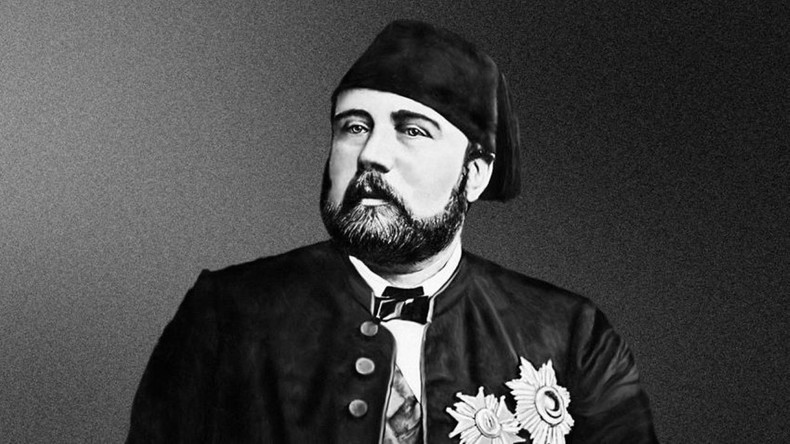Isma'il Pasha (Arabic: إسماعيل باشا), also known as 'Ismail the Magnificent, was the Khedive of Egypt and ruler of Sudan from 1863 to 1879. He was removed from power at the request of Great Britain and France. Similar to his grandfather, Muhammad Ali Pasha, Isma'il modernized Egypt and Sudan during his reign. He made significant investments in industrial and economic development, urbanization, and expanding the country's boundaries in Africa.
In 1867, he obtained Ottoman and international recognition for his title of Khedive (Viceroy) instead of Wāli (Governor), which was previously used by his predecessors in the Eyalet of Egypt and Sudan (1517–1867). However, Isma'il's policies led the Khedivate of Egypt and Sudan (1867–1914) into significant debt. This eventually resulted in the sale of the country's shares in the Suez Canal Company to the British government and his removal from power in 1879 due to British and French pressure. The city of Ismailia is named in his honour.
Family
Isma'il, the second of Ibrahim Pasha's three sons and the grandson of Muhammad Ali was born in Cairo at the Al Musafir Khana Palace. His mother, Hoshiyar Qadin, was of Circassian descent and the third wife of his father. Hoshiyar Qadin, also known as Khushiyar Qadin, is reported to be the sister of Pertevniyal Sultan, who was the mother of the Ottoman Emperor Abdulaziz. Isma'il Pasha ruled Egypt and Sudan while his cousin, Abdulaziz, ruled the Ottoman Empire from 1861 to 1876 and was deposed at the behest of the Western powers.
Education
After completing his education in Paris at the École d'état-major, he returned home and became the heir to his uncle, Sa'id, who was the Wāli and Khedive of Egypt and Sudan after his elder brother passed away. Sa'id, wanting to distance himself from his nephew, sent him on various missions abroad, including to the Pope, Emperor Napoleon III, and the Sultan of the Ottoman Empire. In 1861, he led an army of 18,000 to suppress an insurrection in Sudan, accomplishing the mission.
